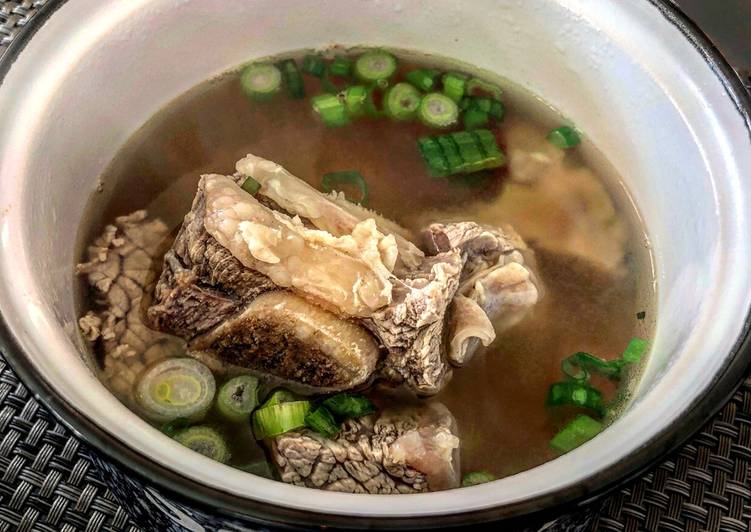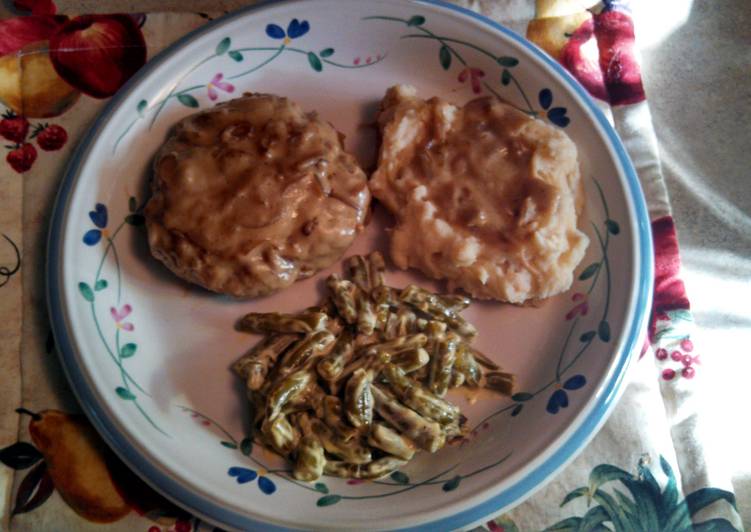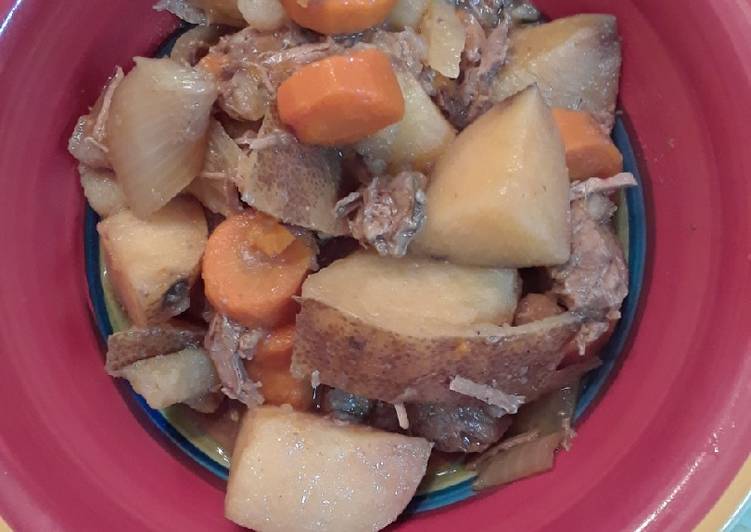
Hello everybody, I hope you’re having an incredible day today. Today, we’re going to make a distinctive dish, galbitang - korean beef short rib soup. One of my favorites food recipes. This time, I will make it a bit unique. This is gonna smell and look delicious.
Check Out Beef Rib on eBay. Fill Your Cart With Color today! Free UK Delivery on Eligible Orders Galbitang (갈비탕) is a clear soup made with beef short ribs (galbi, 갈비). It's a hearty, nourishing soup with a delicate flavor.
Galbitang - Korean Beef Short Rib Soup is one of the most favored of recent trending meals on earth. It is appreciated by millions every day. It is simple, it’s quick, it tastes yummy. They are nice and they look wonderful. Galbitang - Korean Beef Short Rib Soup is something which I’ve loved my whole life.
To begin with this particular recipe, we must first prepare a few components. You can have galbitang - korean beef short rib soup using 12 ingredients and 6 steps. Here is how you cook it.
The ingredients needed to make Galbitang - Korean Beef Short Rib Soup:
- Get 500 g beef short ribs, membranes removed
- Take 1 onion, cut into large chunks
- Prepare 250 g Korean radish, peeled (am not using it cos I can’t find it in my local asian shop)
- Make ready 3 spring onions, white part
- Make ready 2 garlic cloves, peeled
- Take 10 whole black peppers
- Get 10 cups water
- Get Seasonings :
- Get 1 1/2 tbsp light soy sauce
- Make ready 1 tbsp minced garlic
- Take 2 tsp sea salt or more to taste
- Get to taste Ground black pepper
We made another slow-simmering beef soup last night called galbitang, which includes beef short ribs, Korean radish (mu), and glass noodles (dangmyun). Serve with rice and other banchan (side dishes). Galbitang, or Beef Short Rib Soup, is a popular type of Korean soup. It's made by slow-cooking beef short ribs along with other ingredients such as ginger, onions, garlic, radish, and green onion.
Instructions to make Galbitang - Korean Beef Short Rib Soup:
- Soak the beef ribs in cold water for 20 mins. Change the water a few times during this time. This is to draw out the red liquid (which looks like blood) from the meat and also to rinse out any bone fragments.
- In a large pot of boiling water (enough fo fully cover the ribs), boil the ribs for 10 minutes over medium heat. Drain the water and rinse the ribs in cold water. Cut off any obvious excess fat from the ribs.
- Place them in a large clean pot. Add onions, spring onions, garlic, black peppers and water (10 cups) into the pot and bring them to boil over medium high heat, covered. Once boiling, reduce the heat to medium low and simmer for 1.5 hours.
- Gently take out the beef ribs from the broth and set them aside. Strain the remaining ingredients over another clean pot. Discard all the strained vegetables while keeping the broth. Remove the fat.
- Season the beef ribs with the seasoning ingredients and gently place them into the pot. Bring the pot to boil over medium high heat for about 10 minutes.
- Serve the soup with cooked rice and kimchi.
Galbitang, or Beef Short Rib Soup, is a popular type of Korean soup. It's made by slow-cooking beef short ribs along with other ingredients such as ginger, onions, garlic, radish, and green onion. The end result is a clean, mouth-watering bowl of soup that'll fill up your stomach and leave a smile on your face. Galbitang is a rich but delicate Korean soup made from short ribs, Korean radish, and glass noodles (dangmyun), which are made with sweet potato starch. Galbitang (갈비탕), Korean beef short rib soup, is a clear, delicate soup made by boiling beef short ribs with aromatic vegetables.
So that is going to wrap it up for this exceptional food galbitang - korean beef short rib soup recipe. Thanks so much for your time. I’m confident you will make this at home. There is gonna be interesting food in home recipes coming up. Don’t forget to bookmark this page in your browser, and share it to your family, colleague and friends. Thanks again for reading. Go on get cooking!

